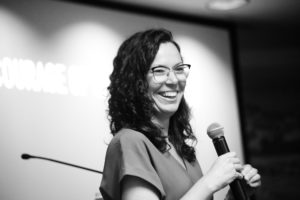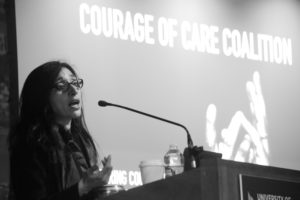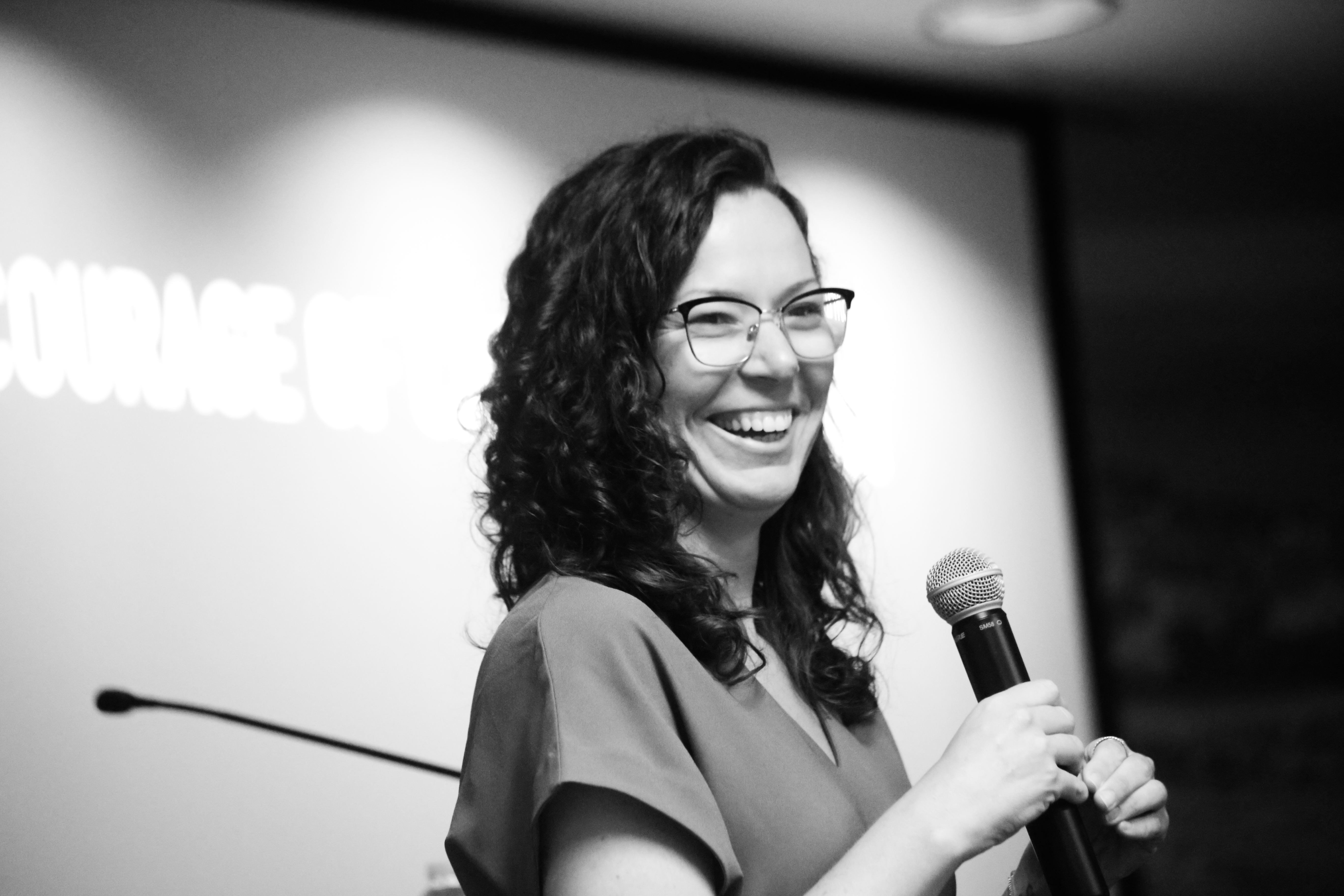By Ben Theriault, Staff Writer
Brooke Dodson-Lavelle, co-founder and president of the Courage of Care Coalition, led the first event hosted by the Center for Compassion, a new organization at USM, with a presentation titled, the “Courage of Compassion.” Professor Vaishali Mamgain, an associate professor of economics, is the director of the new organization.

The USM Office of Public Affairs stated in a story on their website that the new organization will be “a planned center whose role will be to educate and train the University and the community in how to deepen compassion.” They also added that the center will work together with community and corporate partners to host workshops to strengthen connections with the community and to raise awareness of important issues such as poverty and social justice.

Mamgain currently teaches the course economics and happiness, a compassion study and research class. This summer she will also be teaching the course, the surprising science and transforming practice of compassion. Mamgain was first to speak at the event, and introduced Lavelle to the audience.
Lavelle’s organization, the Courage of Care Coalition, seeks to educate people about the science behind compassion. Their mission, as stated on their website, is to “empower both personal and social transformation by providing deep contemplative training coupled with powerful tools for systemic change to support individuals, organizations and communities in realizing a more courageous, caring and equitable world.” They do this by providing services that include a variety of workshops and retreats, online and community courses and consulting services for businesses and non-profits.
Lavelle has a doctorate degree in religious studies from Emory University and a master’s degree in Indo-Tibetan Buddhism from Columbia University. She uses this knowledge to apply traditional spiritual beliefs to contemporary society, employing secular and inclusive interpretations of religion to comprise a universal human experience.
Mamgain, who holds a Ph.D. in economics, became interested in the study of compassion while researching quality of life for refugees in Maine. While her research was successful, she had realized that her data was almost entirely quantitative rather than qualitative. In traditional business and economics education, the human aspects of these topics are omitted; she realized that her education had not prepared her to actively engage with refugees’ stories. This led her to integrate “contemplative practices” into her teaching strategy.
The lecture began with a few definitions of what compassion is. Lavelle stated that compassion is ultimately what it means and what it feels like to be human. According to Lavelle, it is also a the ability to nurture a capacity for perspective taking. One needs to be able to see from others’ perspectives and meaningfully consider different worldviews. She also stated that it is the “development of skills, insight and wisdom to respond to suffering at interpersonal social, and systemic levels.”
Lavelle explained that compassion can be broken down into basic building blocks. This includes a combination of: attention, mindfulness, distress tolerance, affection and care, empathetic concern, wisdom, insight and courage.
Once an understanding of compassion was established, Lavelle discussed the way compassion is practiced. She reduced this to three fluid interactions, receiving care, self care,and extending care. She stressed that in order for one of these aspects to be healthily maintained, the other two must be present and active. he noted that in order to be compassionate, one must be able to receive it.
Lavelle acknowledged that compassion is embraced in varying intensity. While some people may lack compassion, she believes that all people are born with the natural capability to acquire skills needed to understand and practice compassion.
A part of compassion is the incorporation of social justice into its practice. Lavelle stated “we aren’t doing compassion if we aren’t doing equality.” She discussed that education regarding race, poverty and educational inequity is an integral part of learning compassion. She used the quote “If you have come here to help me, you are wasting your time. But if you have come because your liberation is bound up with mine, then let us work together.” by Lila Watson as an example of directly involving yourself versus participating as an outsider.
During the presentation Lavelle addressed the ramifications of having too much empathy. She stated that many people feel overwhelmed by their compassion when it comes to large issues such as world hunger, war and inequality.
Although compassion can cause stress and anxiety, its healing potential is much greater. Neuroscientists at the University of Virginia conducted an experiment that found physical human touch reduced pain when the subjects received electric shocks. Anxiety, discomfort and sleeping troubles can all be mildly alleviated through human contact.
During the lecture, Lavelle had attendees divide into groups of three and discuss who they envisioned when they thought about the embodiment of compassion and how that person makes them feel. Afterwards the group conferred about the commonalities and themes prominent throughout the groups.
Through the use of crowd engagement and interaction, she worked to successfully build a sense of community in the room. She observed that in the United States we have an individually oriented culture. By encouraging the creation of a safe environment to express intimate emotions, Lavelle believes we can unlearn this behavior.
The Center for Compassion will be hosting John Makransky, an associate professor of Buddhism and comparative theology from Boston College, on May 21 from 6:30 to 8 p.m in Room 102 in the Wishcamper Center on the Portland campus. Makransky is also the co-founder of the Courage of Care Coalition.


Leave a Reply